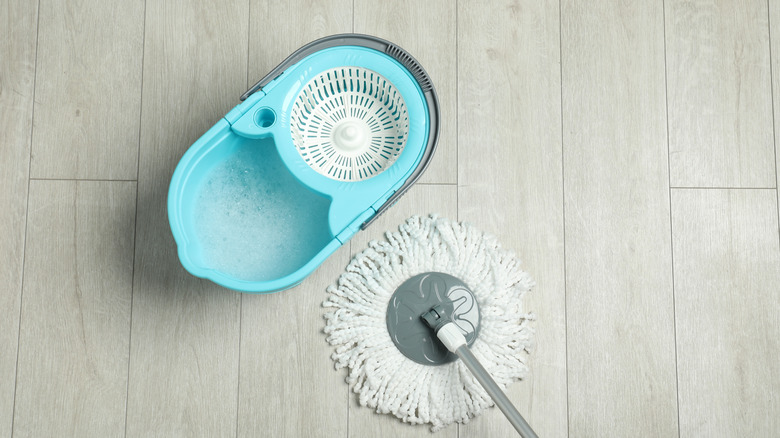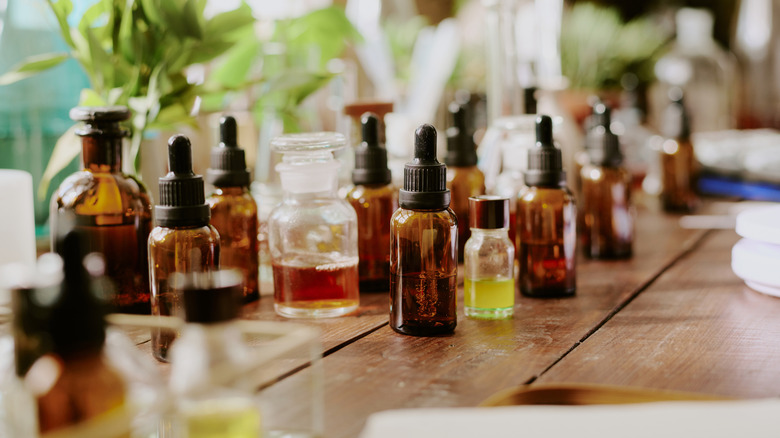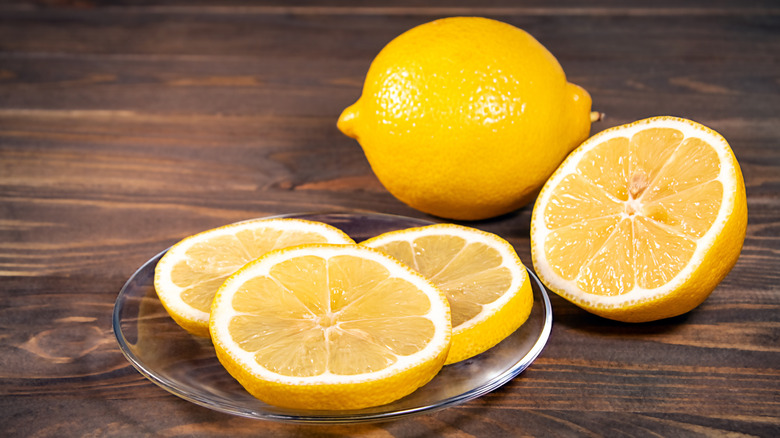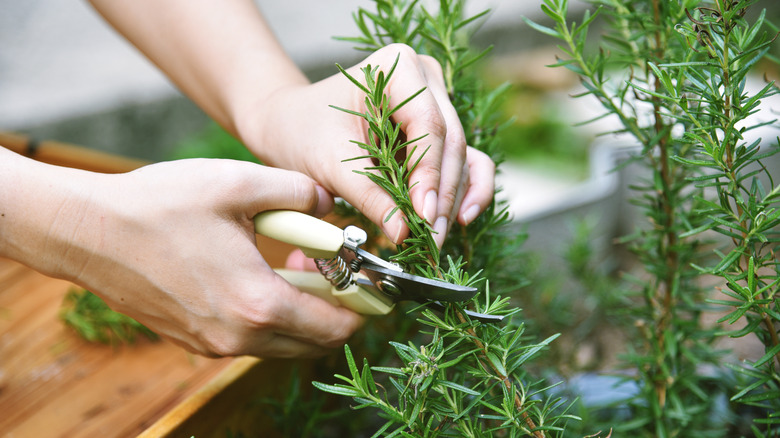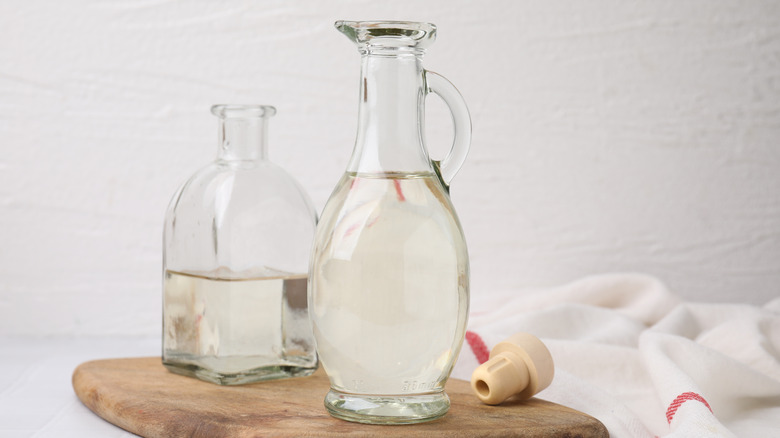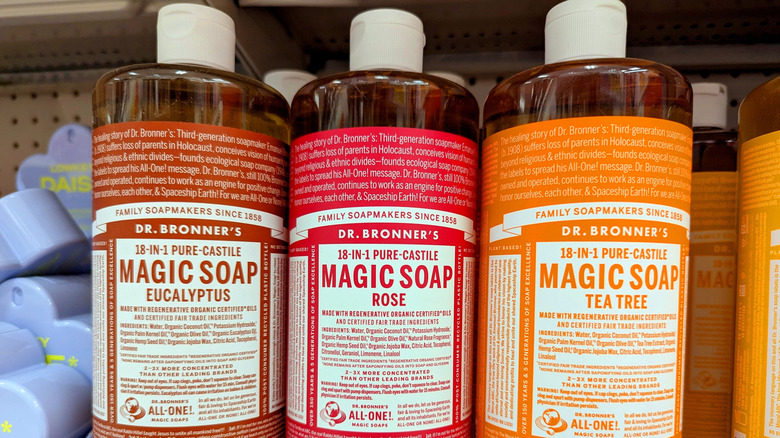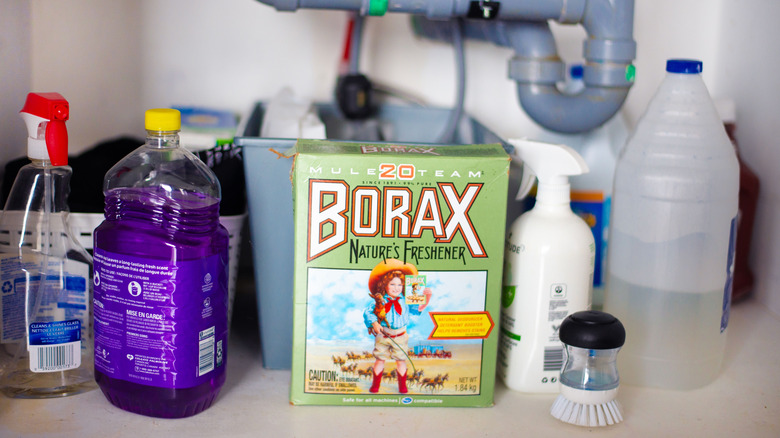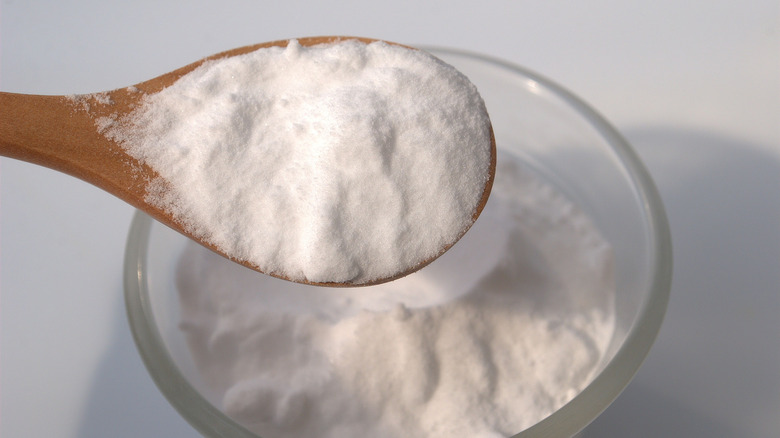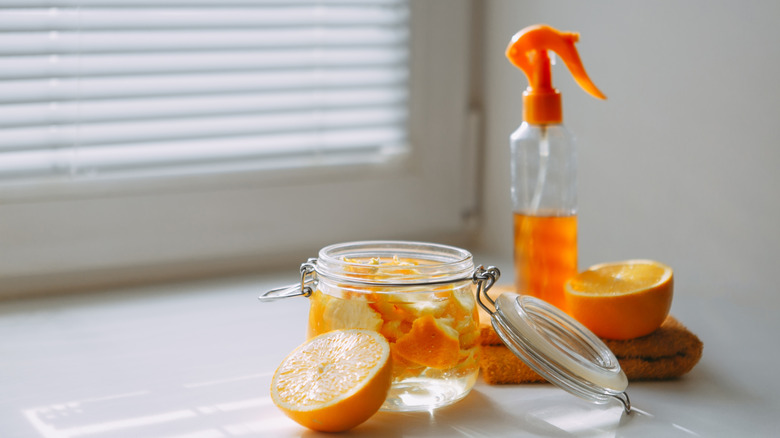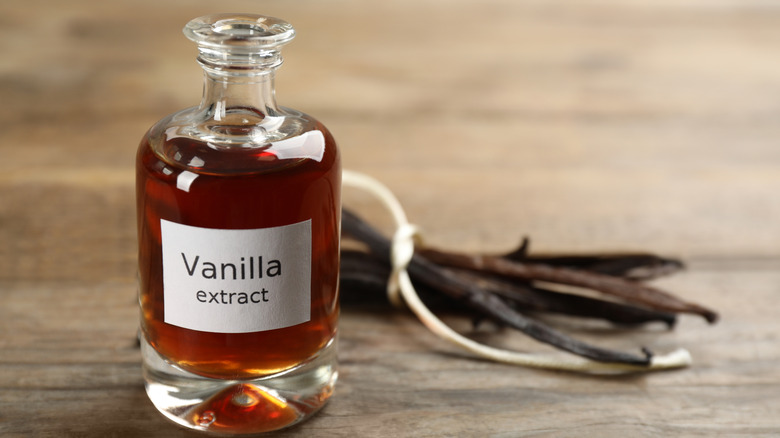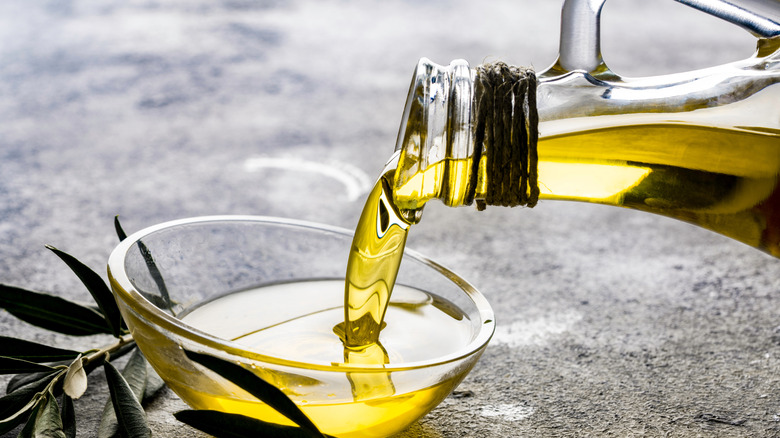10 Natural Ways To Make Your Mop Water Smell Good & Keep Your Floors Clean
Instead of opting for the chemical cleaners typically advertised for mopping your floors, you may want to branch out with more natural ingredients. These won't just keep your home from reeking of chemical scents, but they can boost the overall quality of your cleaning solution. From natural ingredients like citrus and baking soda to white vinegar and essential oils, you can switch up your floor care routine, keep your home smelling fresh, and give your flooring a serious clean.
When it comes to mopping, it's usually recommended to avoid chemical cleaners, as these harsh chemicals can damage your flooring and even negatively impact your health. Plus, they are not typically environmentally friendly. While you can opt for purchasing gentler cleaning mixes, it's always ideal to choose natural ingredients. Most of these natural products, like lemons and vinegar, can work safely on your flooring, no matter what material you're working with.
Essential oils
Adding a few drops of essential oils to your DIY floor cleaner is one of the easiest ways to freshen up the smell of your home. You can choose from popular options like lavender, eucalyptus, citrus, chamomile, peppermint, and tea tree. While the oils don't do much in terms of sanitizing your floors and will typically require additional ingredients like vinegar or baking soda to truly clean, they give your home a delicious scent. Some sources claim that essential oils can help kill bacteria and viruses, but in general, these oils are for aromatic purposes.
Lemons
Thanks to their citric acid, lemons are a wonderful natural ingredient to add to your mop bucket for a clean, fresh-smelling floor. This acid is antibacterial and can help cut through tough grease spots on your floors. You can either soak lemon peels in your mop water or add some fresh lemon juice. Just lemon juice alone won't be enough to sanitize your floors, so it's typically recommended to add a small amount of vinegar, baking soda, or dish soap to boost the solution's cleaning properties.
Rosemary
While you can, of course, add a few drops of rosemary essential oil to your mop water and call it a day, you can also use rosemary sprigs if you have some on hand. If you don't have essential oils, but you have fresh herbs, you can still utilize them to boost the scent of your home. Similar to using lemon slices, you can soak freshly harvested rosemary in water before removing the herbs and adding the liquid to your bucket. Some experts also suggest even boiling the rosemary water for about 15 to 20 minutes before adding it to your floors. The fresh scent of rosemary is way preferable to a harsh, chemical odor.
White vinegar
One of the most popular natural cleaning products found in your pantry, white vinegar is an excellent option for a DIY floor cleaner. Thanks to its acidic properties, vinegar, when mixed with water, helps to cut through the grease and grime on your floors. While the idea of using vinegar on your floors might sound alarming, given vinegar's typically strong scent, there are ways you can reduce its smell by adding extra ingredients like baking soda or essential oils. Flooring you should avoid mopping with vinegar includes natural stone and waxed or unsealed hardwood.
Castile soap
As opposed to typical cleaner ingredients like synthetic detergents, Castile soap is comprised of vegetable oils, making it an eco-friendly option for home cleaning. You may even have a bottle of it in your shower, as Castile soap is often used as skin care, shampoo, body wash, and even toothpaste. Castile soap can also easily cut through tough grease and dirt on your floor. This versatile product is an easy addition to your mop bucket and can come in various scent options. To use it on your floor, combine about a teaspoon with 1 gallon of warm water.
Borax
Borax, a natural mineral salt also known as sodium borate, is an excellent option for a DIY floor cleaner, specifically if you have tile or linoleum flooring. It's recommended to pour 2 tablespoons of borax into a bucket of warm water to create your own mopping solution. Unlike chemical-based cleaners, borax does not leave a strong smell behind. You can also add vinegar or Castile soap to boost the cleaning properties even further, as well as essential oils for your favorite scent.
Baking soda
As you might expect, baking soda is a quick and easy addition to any mop bucket solution. Chances are, you already have at least one open container in your home. When using baking soda as a mop bucket addition, different floors will require different amounts. However, the general rule of thumb is to mix about a half cup of baking soda with one gallon of warm water. To create your favorite scent, add citrus, herbs, or essential oils to the solution. Afterwards, rinse the floor with a clean wet mop to get rid of any potential residue.
Citrus and vinegar
If you're not a huge fan of lemon but you still want to try adding citrus to your floor cleaning routine, you can utilize any other kind of citrus, like oranges, grapefruits, and limes. Similar to lemons, other citrus fruits are not natural disinfectants, so you will have to add another cleaning ingredient, like vinegar, to create a DIY mopping solution. You can either add juice to your mop bucket or soak citrus peels in vinegar. It's recommended to let the peel solution sit in a dark, cool place for at least one week before using.
Vanilla extract
If you're a big fan of sweet-scented candles, you may want to try adding a few drops of vanilla extract to your mop bucket. This popular baking ingredient, while not a disinfectant, allegedly has antimicrobial properties and works perfectly alongside baking soda or vinegar as a natural floor cleaner. It's a much safer ingredient than the typical chemicals in standard cleaners. Plus, your home will smell better than ever. Combine about 1 teaspoon of vanilla extract with 1/2 cup of white vinegar and 1 gallon of warm water.
Olive oil
If you have hardwood flooring, you can add a little bit of olive oil to your mop bucket to rehydrate the surface. You may not think to use this kitchen staple on the floor, but, while it doesn't work as a disinfectant, the oil can bring out the wood's natural shine. It's typically recommended to mix olive oil with additional cleaning ingredients like vinegar, and you can even add essential oils to create your favorite scent. After mopping the floor with this solution, make sure to wipe dry to remove any residue.
